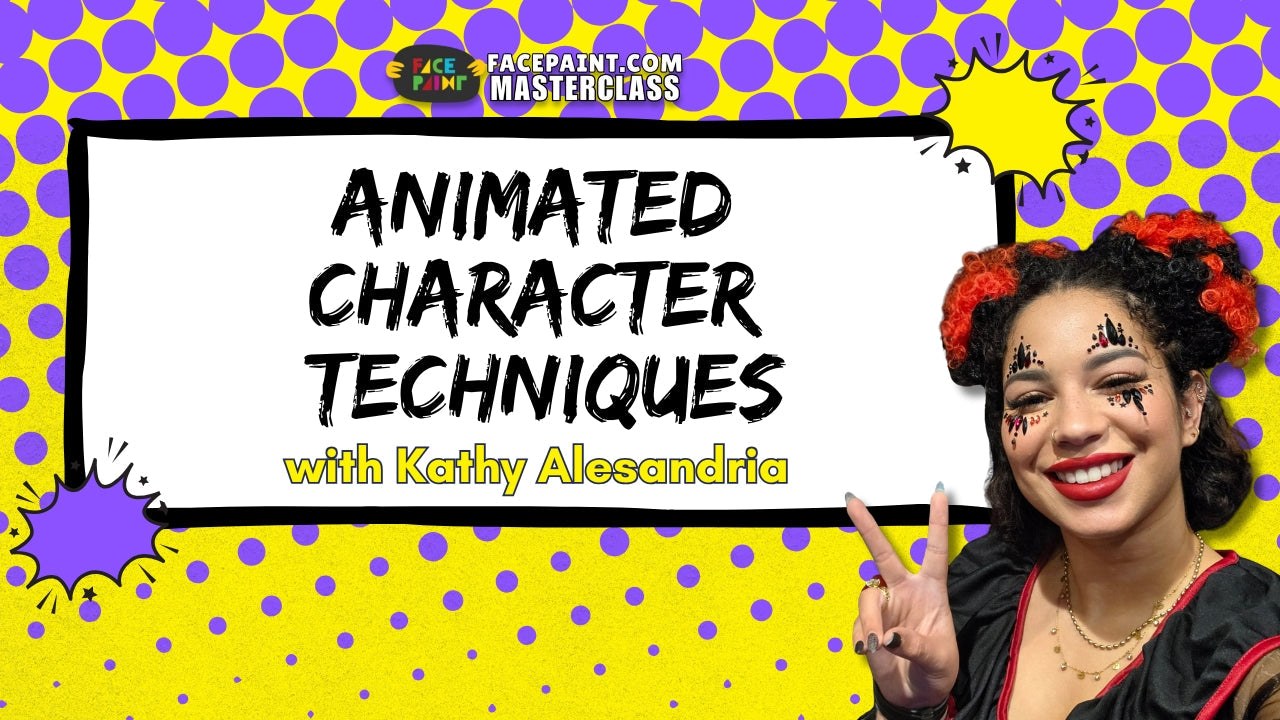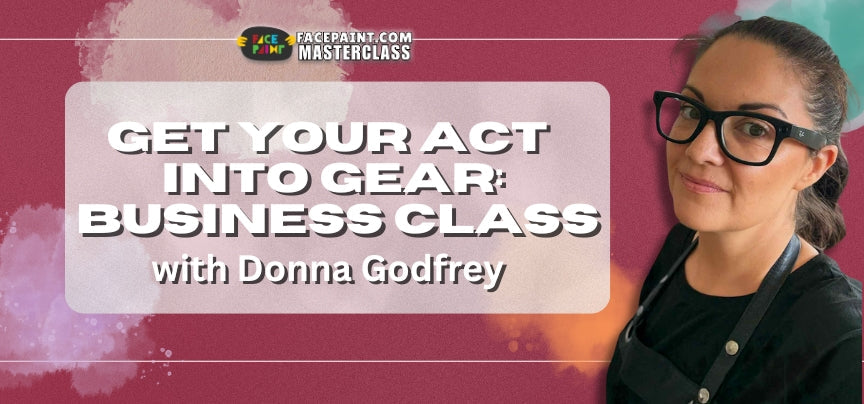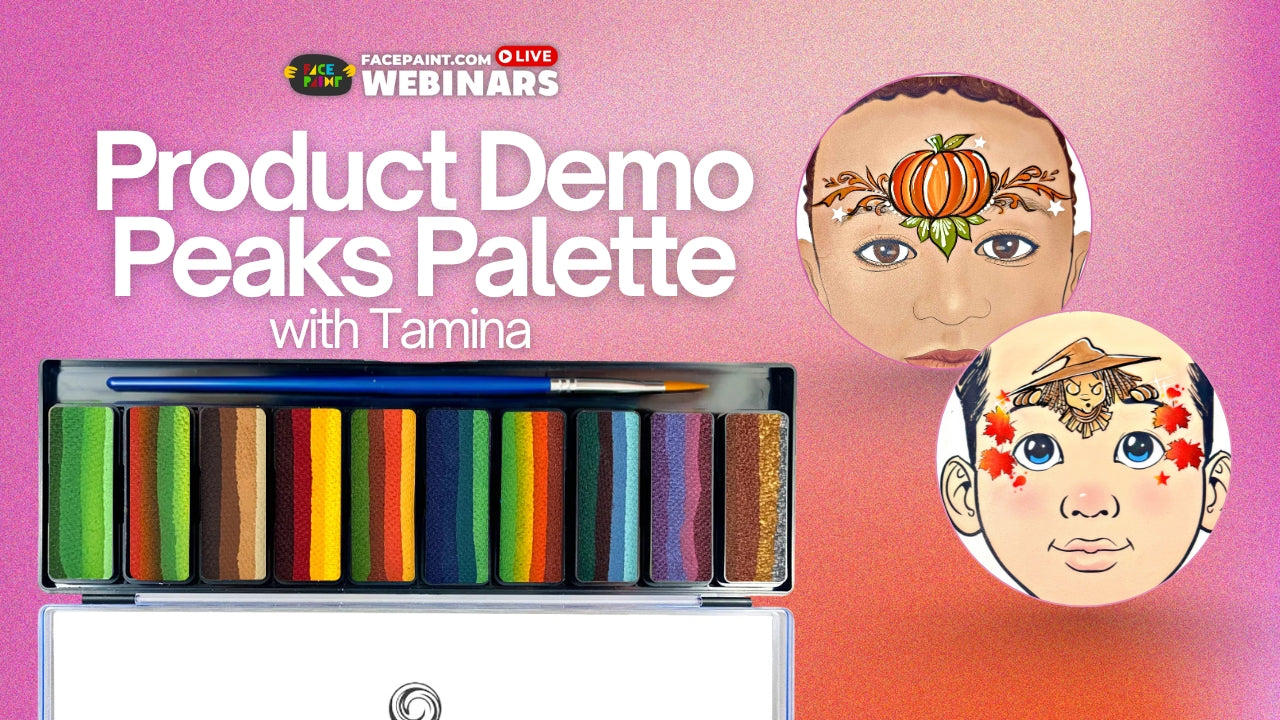
Problem: We want you to train our volunteers, too!
Each year you offer to face paint gratis at the fundraiser for your daughter’s school, but you’ve found the event increasingly stressful. You usually provide your own equipment and expertise at no cost, but this year you’re having second thoughts, because the organizers for the event mentioned they expect you to not only face paint, but to train a team of adults and equip them with paints, brushes, and other equipment they need.
You’re taken off guard by their decision. Your professional equipment is expensive, and you never make it available for volunteers. The organizers are unhappy when you balk, but you’re equally frustrated that they don’t seem to respect you as a trained professional. Since you’re working for free and weren’t actually hired, you’re also a bit irritated that comments have filtered back to you that a few organizers are implying you were hired (implying you’re being paid) but aren’t doing your job by building a team for the face painting.
Solution: Define your services and performance
The root of this problem is a breakdown in expectations which will require diplomatic communication to clear up. While most clients do understand face painters are professional artists who have invested years of time and money in their businesses, there are clients who, for one reason or another, at first view face painting as a simple kids’ entertainment which does not require special training or expensive equipment. While it’s possibly they don’t think of face painting as a viable profession, it’s equally possible that they feel the fundraiser should be a time of all the parents uniting to do what they can to raise funds, so in refusing to train and equip an entire team (not understanding the cost and time involved) they view you as not joining them in an important cause.
There can be frustration on both sides, but the responsibility rests on the artist to correct any misunderstandings, because clients aren’t going to automatically understand the face painting industry. If you run into this, you need to cover the following points with your client. (And even if you choose to work for free for a good cause, the person you work for is still a client, so make sure everything is in a contract.)
This is your business rather than a hobby
While the weekend is everyone else’s time off, it’s your work week. Your contribution for the fundraiser is that you are taking time off work without pay by providing a professional service for free. Make this clear.
Your kit is for your professional use only
Your kit is professional equipment, and under no circumstances is anyone else allowed to use it or remove supplies from it. The cost of a professional face painter’s kit can range from around $300 to $1000 or so, depending what they carry with them for events. Just as you provide your own equipment, volunteers must provide their own professional face paints in order to provide face painting.
Hourly rate available for training
Instruction of others would need to be charged at your normal hourly rate. If they’re willing to do this, that’s fine, but if they’re not, the volunteers need to do their best to learn on their own. Your time is valuable.
Volunteer speed and quality will be limited
Explain that face painting takes a great deal of training and practice. There are no shortcuts, no matter how artistic the volunteer is. You cannot give a volunteer your skill level with one or two sessions on how to face paint. You can provide tips which will help, but the organizers need to have realistic expectations of what their volunteers will be able to do.

When I began face painting, I already had a Bachelor’s degree in art as well as years under my belt as a graphic designer and professional artist, but my first face painting efforts were (let’s just be honest) awful. Since face painting is also about how you make the child in the chair feel, emphasize this for the volunteers. They might not have perfect execution of designs, but they can still make the child feel special while they are working on him or her.
Define your liability insurance limitations
Your insurance could be affected by you supplying your equipment to others to use, so you would definitely need to check with your company if you plan to do this. Also, some policies, while covering you for your performance, will not cover you training others.
Allow no acrylic paint or non-FDA compliant makeup to be used for event
Volunteers must commit to not using acrylic paints, low quality face paints, or craft glitter (extremely dangerous) for the event. They must also commit to following good hygiene practices. You don’t want to be sued because someone else didn’t use safe materials or good hygiene.
Well-child policy will apply to all volunteers
The volunteers must commit to following a well-child policy, which means no children with any kind of communicable disease or skin condition will be painted.
Personally, I don’t mind having volunteers work with me at events as long as they’re using good quality face paints, but you should check in with your insurance company if you feel this might be cause a problem with your own coverage. Multiple face painters often work large events together, but they’re usually all carrying insurance.
Define all terms in your contract
While education of the client is important, on your part, you need to look, dress, and act like a professional performer and businessperson. Your correspondence, even for your school’s free event, should be professional. You should create an event contract which clearly outlines your responsibilities in performing at the event, even if you’re painting for free. Your kit should look professional and be kept as clean and orderly as possible during events. You should make sure you use adequate hygiene practices while you work. You do not want to give the client a reason to believe that you aren’t truly professional because you dressed in a t-shirt and jeans, had a sloppy kit, or were ill-prepared. There is a direct correlation in they way you are perceived by a client to how you are treated by a client.
Know when to walk away
Finally, you will have to face the possibility that the organizers may refuse to be open to your point of view. If this is the case, it’s best to politely let them know that while you’d love to be part of the event, you believe you’re not the best fit for it this year. Allow them to pursue their own plan this time around and book other clients for the date. You don’t want to burn bridges, so be kind, but it’s okay to set some boundaries which will insure your own peace of mind and help them understand this is your business, not just a hobby which you do for fun.
Beth MacKinney is the owner of and primary face painter for Face Paint Pizzazz in the NW Chicago suburbs. Stop by Clownantics.com to see other face painting tutorials by Beth.
If you’re on Facebook, join the Facepaint.com Challenge Group to showcase your artwork and have a chance to win a store credit for themed contests. To get access to units filled with tutorials, product information, business info, and free downloadable resources, join our Facepaint.com 411 Learning Center on Facebook.
 FREE SHIPPING FOR USA ORDERS OVER $100
FREE SHIPPING FOR USA ORDERS OVER $100








Leave a comment (all fields required)